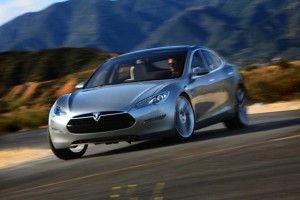While we’re not exactly sure when or where it happened, some green-minded U.S. motorist helped the nascent battery car market reach a critical milestone this past weekend, purchasing the 100,000th plug-based vehicle – or so claims the advocacy group Plug-In America.
“Our current estimate, based on monthly sales figures from automakers, is that the 100,000th highway-capable plug-in vehicle (was) sold on May 20,” said Tom Saxton, Plug In America’s chief science officer. “We are calling this the #PIA100K mark, and we are excited to see the continued growth of the market.”
Proponents are hailing the news and noting that it’s been barely three years since the launch of the modern battery-car industry with the nearly simultaneous debuts of the Chevrolet Volt plug-in hybrid and the Nissan Lead battery-electric vehicles, or BEV.
Since then, a wave of similar products have hit the market, everything from the little Chevrolet Spark battery car to the new Porsche 918 plug-in supercar the German maker announced last week. In fact, virtually all major automakers expect to have some form of plug-based vehicle for sale by next year, if for no other reason than to meet California’s demanding new Zero-Emission Vehicle mandate.
(Check out the new Porsche 918 Plug-In supercar. Click Here.)
Despite the new offerings, sales have fallen well short of what proponents have hoped for. The Obama Administration, for example, drove into D.C. promising to help put 1 million plug-based vehicles on the road by 2015. Barring some exclusive growth, few anticipate the market will come close.
Include all forms of battery-based vehicles, from so-called “mild” hybrids to BEVs and they now generate a mere 3% of U.S. new vehicle sales. Leave out conventional hybrids – like the industry’s best-seller the Toyota Prius – and the figure flops to barely 0.5%.
Nonetheless, there are some positive signs. Tesla outpaced its own modest first-quarter expectations for the Model-S battery sedan, delivering the California maker its first-ever profit. Nissan has seen a surge in Leaf sales since shifting production to the U.S. and cutting prices earlier this year.
The high cost of battery technology is generally seen as one of the biggest obstacles for products like the Volt. But there’s also the question of limited range. Tesla is offering nearly 300 miles per charge with its optional battery pack for the Model S. And it has begun setting up a network of so-called Superchargers, or quick-quick stations.
In fact, a new study predicts the number of places to plug in will increase 100-fold, to over 13 million worldwide, over the next decade easing so-called range anxiety.
(Check out the new Porsche 918 Plug-In supercar. Click Here.)
But for now, don’t expect to see a huge surge. To put things into perspective, Toyota sells more Camry sedans in three months than all the plug-ins now on U.S. roads.
For its part, Plug-In America hopes to encourage potential buyers and will offer a home charger as part of a free drawing open to anyone who purchases a plug-based vehicle between May 15 and June 15.


Nissan LEAF, not “Lead”
Plug-ins will sell like hotcakes if the price of gas goes up or if the technology price drops. Otherwise, not gonna happen